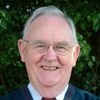Aberdeen, July 1970. Does this date and location have any significance for you?Probably not. However, for those readers who were, or still are, members of the Exclusive Brethren then the date will probably be significant. And the reason? Well, Aberdeen, July 1970 was a milestone for many Exclusives; it was a crisis and a turning point in their movement. I will explain what happened but I need to warn you that there has been a conspiracy on the part of some people to withhold the facts.
Bad behaviour
Basically, the facts concerning Aberdeen ’70 are as follows. The American, James Taylor Junior (1899-1970) was leader of an Exclusive Brethren group at the time and he was in the United Kingdom during the summer of 1970 for a series of conferences known as Three-day meetings. These meetings commenced on a Friday and continued until the Sunday. Taylor addressed three such conferences in Reigate, Manchester and Aberdeen. Sadly, Taylor had become an alcoholic, at least from 1965, and his general behaviour on occasions was shameful and distressing.
And that was what happened in Aberdeen. In a private home from 23-25 July there was ‘adulterous behaviour’ on the part of Taylor, witnessed by a number of people, as well as ‘obscene language and gestures’ in a meeting on 25 July. The Aberdeen brethren, supported by many from other places, withdrew from Taylor and reported the incidents with the appropriate evidence (including tapes) to Taylor’s assembly in New York.

The report was denied both by Taylor and his followers. What was worse, they refused to investigate the matter. Immediately, all those in membership with the Taylor assemblies had to commit themselves, under pressure and without reservation, to Taylor.
You can imagine at least part of the sequel to this incident. Leaders tried to suppress the facts, hundreds of brethren worldwide were pressurised to support Taylor while some left in disgust and others were dis-fellowshipped or ‘withdrawn from’ for their attitude to Taylor. And that was painful and cruel, as I will illustrate later. But in October that same year, 1970, Taylor died.
Open or Exclusive
At this point it is necessary to pause and view the Aberdeen incident within the broader Brethren background. It was in 1820 that the ‘Plymouth Brethren’ movement started when a group of Christians met in Plymouth, Devon, in England, for worship and the breaking of bread without the support or use of ordained ministers.
A man who dominated the movement in the early years was J. N. Darby (1800-1882) but in 1848 there was a deep division between Darby and the Plymouth brethren. The differences between the two groups were not insignificant. Darby insisted on separating from people who disagreed with his interpretations of Scripture, and a significant number of believers endorsed Darby’s policy and followed him. Those who followed Darby were known as ‘Exclusives’. They believed in a universal worldwide network of fellowships, with strong central leadership and a tight control of members.
In contrast, the Plymouth Brethren were called ‘Open Brethren’. For them, each local assembly is independent. The fellowship enjoyed between assemblies is spontaneous and spiritual, without impinging on the autonomy of the local assembly. The believers locally are themselves directly responsible to the Lord, not a human leader. This represents a major difference between the two sections of the Brethren movement.
Open Brethren commended
I now need to emphasise that I am in no way referring to the Open Brethren in what I write in the rest of this article. They are themselves facing some contemporary issues such as the appointment of a salaried ‘worker’ or even pastor; the audible participation of women in meetings; the process of appointing elders and the length of the appointment; the use of musical instruments in services; modern music; the exclusive use of the Authorized Version; the rightness of forming a recognised denomination; and their ties with historic denominational churches.
Another practical issue is whether visitors should be received to the breaking of bread only on the basis of a formal letter of introduction from their home assembly. Varying attitudes are adopted towards these issues and one welcomes a new openness on the part of many of these assemblies towards other Christians and to co-operation in genuine evangelical activities.
What is also pleasing about Open Brethren is their commitment to missionary work. It is estimated, for example, that one per cent of the total number of members in Brethren assemblies are serving on the mission field. By modern standards, this is in excess of almost every Christian denomination.
Operation World reports that Brethren fellowships in Canada, USA, UK, Australia and New Zealand together have 1223 missionaries. But, in addition, there are many national workers as well as workers from other countries involved in world mission. The position is that several thousand members are currently working in mission. These facts are encouraging and I repeat that I am in no way criticising the ‘Open Brethren’ in this article.
Exclusive heresies?
Let me pick up the story again regarding the Exclusive Brethren. F. E. Raven assumed the leadership of this section of the Brethren when Darby died in 1882 but within eight years a major division took place over Raven’s teaching.
The heresies which Raven was accused of teaching were: (1) the denial that each true believer in Christ necessarily has eternal life as a present possession; (2) the denials of the unity of Christ’s person; and (3) the denial of the full humanity of Christ.
There is general agreement that Raven’s teaching was unclear and unsound but there was considerable confusion as well as misunderstanding (not to mention misrepresentation) in the ensuing discussions. It seems, however, that Raven taught the pre-existence of Christ but believed that he only became the Son at his Incarnation.
It is suggested by some that Raven’s wish to ‘study Scripture less and pray more’ freed him and his followers eventually from subscribing to the traditions and teachings of his forebears. Did this lead to the present approach, where the leader makes whatever rules he pleases for the members? Those who disagreed with Raven formed an assembly known as the Tunbridge-Wells Brethren as distinct from the ‘Raven Brethren’.
Further divisions
After Raven’s death in 1903, the leadership of his group was assumed by James Taylor Senior (1870-1953). His contribution was distinctive for two main reasons. Firstly, he perpetuated, especially after 1929, Raven’s teaching that Jesus only became the Son of God after his incarnation. Secondly, he insisted that ‘the ministry’, namely the discussions of the brethren in formal assembly, were equivalent in importance to Scripture.
Further divisions occurred in 1920, 1935, 1951 and 1960-61. In 1970 the Aberdeen dissidents became known as the ‘Strange-Walker Brethren’ and later united with the ‘Ilford Fellowship’ and ‘Frost Group’. A number of small groups, as well as many of the ‘Grant-Kelley meetings’ also reunited in 1973.
It is the Raven/Taylor group, or Taylorites, that I am going to focus on in the next article. James Taylor Sr was succeeded by his son James Taylor Jr who died in 1970. James Symington then assumed the Taylorite leadership, and Symington was followed in turn by John Hales of Australia.
Why call it a cult?
How strong is this Exclusive Raven/Taylor group? There are assemblies in 288 cities in the world and approximately 27,000 members worldwide. They are mostly of European descent. Meetings are held in the following countries: the UK, Ireland, Germany, Holland, Sweden, Denmark, France, Italy, Spain, South Africa, Argentina, Trinidad, St Vincent, Barbados, Jamaica, USA, Canada, New Zealand, Australia and India. All meetings, whatever the native language, must be conducted in English.
But why call this group a cult? I will explain in the next article but, briefly stated, I will contend that they distort the gospel of grace, undermine the supreme authority and sufficiency of the Bible, devote unqualified allegiance to their leader and enslave themselves in legalism. More of this next time.





